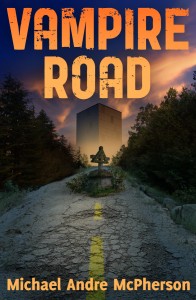To Blog or to Write: That is the Question
All the great success stories on Amazon–from Amanda Hocking to John Locke–have one thing in common: multiple books. Joe Konrath says that writing multiple books is the most important thing a writer can do to advance her/his career. John Locke also warns that there is nothing more frustrating than to have a product’s sales take off and not have anything else for an interested customer to purchase. In the case of novels, it means that mountain you’ve climbed to promote one novel will have to be scaled again a year later for the next novel.
So I have to examine whether blogging, twittering and promoting is time well spent when I only have one novel and one anthology (in very different genres) up for sale. What if I get lucky and people start buying Vampire Road in big numbers rather than the steady trickle of sales I get right now? They might be ready to read more, and if there is nothing to buy until next year, they might forget my characters and move on to something else.
Time pressures are different for everyone. I write quickly, but I can’t write a book in fifteen days like Amanda Hocking. My kids eat up a lot of time in the evenings and on weekends, and I’m not going to short change them. That’s a choice I’ve made. But if I’m to finish The Book of Bertrand by mid-October and get it off to my editor, something has to give.
So I haven’t been blogging or twittering for the last couple of weeks, but I have been writing. It’s been fun. My editor and a couple of reviewers want to know more of the back story to Vampire Road, and The Book of Bertrand delivers. The progression from computer nerd to saint is a torturous path with euphoric highs, desperate action and unintended consequences that will reverberate down the century to Vampire Road.
But I’m not stopping there. There are four novels in this series, and I’m going to try and get as many of them up in the next few months as possible. It’s a lot of work, but I believe the best thing I can do to promote Vampire Road is to have all the other novels in the series available for purchase.
I like blogging though, so I will try to post quick notes on Fridays, but I won’t be posting three of four times a week. I’ve had to decide whether I’m a blogger or a writer, and novels are my preferred form of expression.
So I’m logging off to write, but I will keep you posted. See you next Friday.




